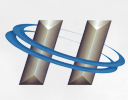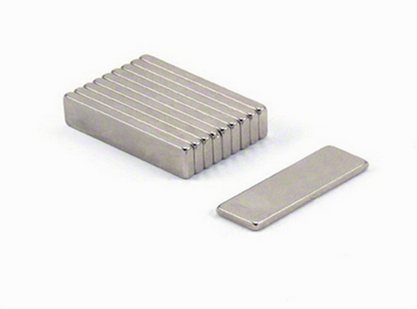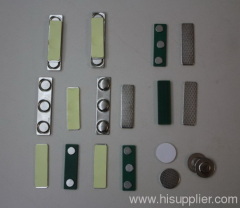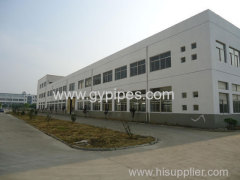


|
NINGBO HONY TECHNOLOGY CO.,LTD
|
Gold Index: 564930
| Payment Terms: | T/T,L/C,D/A,D/P |
| Place of Origin: | Zhejiang, China (Mainland) |
|
|
|
| Add to My Favorites | |
| HiSupplier Escrow |
Sintered Neodymium Magnets Composite and Block Shape magnet 20x10x10mm
Directions of Magnetization
a. Thickness Magnetized
b. Axially Magnetized
c. Diametrally Magnetized
d. Multi-poles magnetized
e. Radial Magnetized
f. Customized specific requirements magnetized
1. Materials
Sintered Neodymium-Iron-Boron
2. Grades
Range: N35-N52; N35M-N50M; N35H-N48H, N35SH-N45SH; N30UH-N40UH,N30EH-N38EH
-The grade like N48-N52 could meet your requirements on strong power
-Standard one like N35 or N40 is okay for your normal applications
3. Shapes
Others available: Block, Ring, Cylinder, Disc, Customized shape as your design.
4. Size
Length x Width x Thickness You could choose freely according to your plan.
5. Coatings
Others available: Nickel, Zinc, Gold, Silver, Epoxy, Parylene, etc.
6. Orientation
Through the direction of thickness or according to your needs.
7. Quality
Our expert quality control department ensures magnets are high quality.
8. Applications
Sensors, motors, rotors, wind turbine,wind generators, etc
Sintered Neodymium Magnets Composite and Block Shape magnet 20x10x10mm

Sintered Neodymium Magnets Composite and Block Shape magnet 20x10x10mm
| Magnet Information | |||
| Description | Sintered NdFeB Magnet | ||
| Material: | Neodymium-Iron-Boron | ||
| Shape: | Ring, Thin-wall ring, Disc, Cylinder, Segment,Contersunk, Tapezoid, Irregular Shape…With special shape requirement, we have own R & D dept. to support | ||
| Coating: | Ni-Cu-Ni, Nickel, Zn, Gold, Cr, Silver, Copper, Anti-Rust Oil, Spray Rolling, Black, Grey Epoxy, PTFE, Parylene, and so on. | ||
| Magnetic Performance Sheet | |||
| Grade | Remanence(Br) | Coercivity(BH) max kJ/m3 | Temperature |
| mT | KJ/M3 | (Tw°C) | |
| (kGs) | MGOe | ||
| N35-N52 | 1170-1480 | 263-422 | 80 °C |
| (10.3-14.8) | (33-53) | ||
| 35M-50M | 1080-1450 | 263-406 | 100 °C |
| (10.8-14.5) | (33-51) | ||
| 35H-48H | 1170-1430 | (263-390) | 120 °C |
| (11.7-14.3) | (33-49) | ||
| 35SH-45SH | 1130-1380 | 247-366 | 150 °C |
| (11.3-13.8) | (33-46) | ||
| 30UH-40UH | 1080-1280 | 263-326 | 180 °C |
| (10.8-12.8) | (33-41) | ||
| 30EH-38EH | 1080-1250 | 223-310 | 200 °C |
| (10.8-12.5) | (28-39) | ||
| Magnet Coating | |||
| Coating | Thickness (Microns) | Color | Resistance |
| Anti-Rust Oil | 1 | Trancparency | Temporary Protection |
| Spray Rolling | 10-30 | Common Black | 24 hours of salt spray test |
| Zinc | 5-10 | Bright Blue | 24 hours of salt spray test |
| Nickle | 10-15 | Bright Silver | 48 hours of salt spray test |
| Ni+Cu | 10-20 | Gold | Temporary Protection |
| Ni+Cu+Epoxy | 15-30 | Grey, Black | Excellent Against Humidity & Salt Spray |
| Epoxy | 15-25 | Grey, Black | 72 hours of salt spray test |
| Parylene | 10-30 | Trancparency | 200 hours of Salt Spray. Superior Against Solvents, Gases, Fungi and Bacteria |
Sintered Neodymium Magnets Composite and Block Shape magnet 20x10x10mm
FAQ:
1. What are neodymium magnets? Are they the same as "rare earth"?
Neodymium magnets are a member of the rare earth magnet family. They are called "rare earth" because neodymium is a member of the "rare earth" elements on the periodic table. Neodymium magnets are the strongest of the rare earth magnets and are the strongest permanent magnets in the world.
2. What are neodymium magnets made from and how are they made?
Neodymium magnets are actually composed of neodymium, iron and boron (they are also referred to as NIB or NdFeB magnets). The powdered mixture is pressed under great pressure into molds. The material is then sintered (heated under a vacuum), cooled, and then ground or sliced into the desired shape. Coatings are then applied if required. Finally, the blank magnets are magnetized by exposing them to a very powerful magnetic field in excess of 30 KOe.
3. How is the strength of a magnet measured?
Gaussmeters are used to measure the magnetic field density at the surface of the magnet. This is referred to as the surface field and is measured in Gauss (or Tesla). Pull Force Testers are used to test the holding force of a magnet that is in contact with a flat steel plate. Pull forces are measured in pounds (or kilograms).
4. What does the "N rating", or grade, of the neodymium magnets mean?
The grade, or "N rating" of the magnet refers to the Maximum Energy Product of the material that the magnet is made from. It refers to the maximum strength that the material can be magnetized to. The grade of neodymium magnets is generally measured in units millions of Gauss Oersted (MGOe). A magnet of grade N42 has a Maximum Energy Product of 42 MGOe. Generally speaking, the higher the grade, the stronger the magnet.
5. What is the difference between the different platings and coatings?
Choosing different coatings does not affect the magnetic strength or performance of the magnet, except for our Plastic and Rubber Coated Magnets. The preferred coating is dictated by preference or intended application. More detailed specifications can be found on our Specs page.
♦ Nickel is the most common choice for plating neodymium magnets. It is actually a triple plating of nickel-copper-
nickel. It has a shiny silver finish and has good resistance to corrosion in many applications. It is not waterproof.
♦ Black nickel has a shiny appearance in a charcoal or gunmetal color. A black dye is added to the final nickel plating
process of the triple plating of nickelcopperblack nickel.
NOTE: It does not appear completely black like epoxy coatings. It is also still shiny, much like plain nickel plated magnets.
♦ Zinc has a dull gray/bluish finish, that is more susceptible to corrosion than nickel. Zinc can leave a black residue on
hands and other items.
♦ Epoxy is basically a plastic coating that is more corrosion resistant as long as the coating is intact. It is easily scratched.
From our experience, it is the least durable of the available coatings.
♦ Gold plating is applied over the top of standard nickel plating. Gold plated magnets have the same characteristics as
nickel plated ones, but with a gold finish




